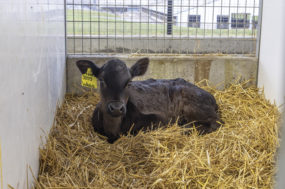“Our greatest responsibility is to be a good ancestor,” said attorney Daniel Rupar, speaking about succession planning at the 2015 World Dairy Expo.
He explained that creating a succession plan for the orderly transfer of your farm leaves a legacy of planning and thoughtfulness for the generations that follow.
Rupar, an attorney with Ruder Ware L.L.S.C., a law firm with offices in Wausau and Eau Claire, Wisconsin, defined succession planning as planning for transfer of ownership and management of the farm or other business in order to keep both the business and family relationships intact.
“We could liken it to be a process, not an event,” he said. “It is also inevitable.”
Good succession planning should be at the top of a farm’s priority list, Rupar said. The farm, family and financial security are all at stake.
He noted that 97 percent of farms are family-owned, but only 11 percent of family farms have transition plans in place. Rupar noted statistics from AgChoice Farm Credit that 70 percent of first-generation operations do not transition successfully to the next generation, and 90 percent of second-generation operations do not make it to the third generation. Succession planning can ensure a farm’s future long-term vitality across generations.
Succession planning should start early, be ongoing and involve all family members and aspects of the operation. They require commitment to an evolving, flexible plan, not a specific outcome.
If you don’t already have family meetings, Rupar said, you should start. They should occur regularly, have defined participants (he recommends including spouses), have a clear agenda, acceptable roles and a set of ground rules.
Both generations should discuss and put in writing the mission of the farm, the mission of the family and the eventual goals of the farm transfer. Ask if the farm will be viable in the future and how many families it can support. What is the timetable and who are the potential successors?
Both parents and children want to be treated with respect throughout the process and desire 100 percent commitment throughout the process. In addition, parents want a secure retirement, a continued role in the operation, to protect the farm and family harmony.
Children want to participate in decision-making, sufficient family income, improvements/modernization and acceptance from off-farm siblings, Rupar said.
Rupar said that it is very important the younger generation continue to ask the older generation for advice during and after the farm transfer. “You really don’t want the exiting family member to feel like a culled cow; it’s important to value his or her input.”
Throughout the entire process, communication is key, he stressed.
As families begin the succession planning process, they should individually identify and prioritize goals. “Identify the common goals and work on those first,” Rupar said.
To turn the goals into action, families should work together to identify and assign action steps, including setting deadlines to get things done. They should put everything in writing.
Families should work with an attorney familiar with farm transfers. Your county extension agent may be able to make recommendations.
Rupar said that the first 10 years of operating with a new succession plan should be considered a test run. While gradually increasing the responsibility of the successor in management decisions, analyze if the arrangement is working for both the owner and the successor.
Once things appear to be on the right track, “earned” equity in the farm operations should be gradually transferred. Rupar said once that transfer is complete, the transfer of the farm real estate should be the last step.
An attorney should be able to help the family choose what type of entity they want their farm business to be and the tax implications of each. Choices may include LLCs (limited liability company), S-corporations, C-corporations and partnerships. The different entities may have different pros and cons depending on your farm and family situation.
“If your goal is to pass your farm or business intact and in use across to the next generation, you will have to have some sort of agreement with that generation,” Rupar said, possibly including a buy-sell agreement, stock restriction agreement or an LLC operating agreement.
He said it is also important to identify potential conflicts, and to have a plan for the five “d’s” – divorce, death, disability, disaster and disagreements.
Another common issue that needs to be addressed with succession planning is being fair versus equitable when dealing with children who returned to the farm and off-farm children.
Provisions of the transfer plan should include: dispute resolution mechanisms, allocation of control, required distributions, sale terms and valuation discounts.
Families should discuss with their attorney if the farm transfer will be seller-financed, what the terms will be and if there will be a promissory note or restrictions on the operations. Other topics for discussion include employment and compensation issues, a review of life insurance policies and a contingency plan.
“All family members benefit from successful planning. It reduces stress in marital, sibling and intergenerational relationships by creating certainty, engendering mutual respect and preserving the economic value of the farm or business,” Rupar said. PD
Kelli Boylen is a freelance writer based in Waterville, Iowa.
PHOTO: Photo by Walt Cooley.





